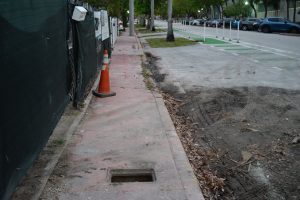 This blog is the second on recent efforts by Republican legislators with the consequence of making Florida’s roads and highways more dangerous. (The first blog: Jeffrey P. Gale, P.A. // Republican Legislators Work to Make Florida’s Roadways Less Safe.)
This blog is the second on recent efforts by Republican legislators with the consequence of making Florida’s roads and highways more dangerous. (The first blog: Jeffrey P. Gale, P.A. // Republican Legislators Work to Make Florida’s Roadways Less Safe.)
Section 768.28(5)(a), Florida Statutes limits the recovery against the state and its agencies and subdivisions for tort lawsuits to $200,000 per individual claim and $300,000 total for all claims arising out of the same incident or occurrence.
No matter how catastrophic and life-altering the injuries may be or whether death results from the negligence of the sovereign, this is the hard cap.
It does not matter what a judge or jury decides regarding the extent of the damages.
Section 768.28(5)(a) is the outgrowth of section 768.28(1), which is a limited waiver by the state of the doctrine commonly referred to as “Sovereign Immunity.” The doctrine is derived from English common law under which the King could not be sued on the theories that he could do no wrong, and that there could be no legal rights against the authority that makes the laws upon which the rights depend. See Miles McCann, Visiting Fellow, National Association of Attorneys General, State Sovereign Immunity, Nov. 11, 2017, https://www.naag.org/attorney-general-journal/state-sovereign-immunity/(last visited Jan. 23, 2024).
In Alden v. Maine, 527 U.S. 706, 728 (1999), the Supreme Court of the United States held that the doctrine was adopted by our country’s Founders in the Constitution itself rather than the Eleventh Amendment, solidifying its place in American jurisprudence. The doctrine is available to the federal government and every state.
Not every state chooses to hide behind sovereign immunity. California and New York, states with large populations and high costs of living and medical care like Florida, have no caps on suits against their state and local governments. Among the states using cap limits, Florida’s numbers are some of the lowest, making them a mere slap on the wrist to wrongdoers and failing to encourage safer practices and procedures.
 Florida Injury Attorney Blawg
Florida Injury Attorney Blawg








